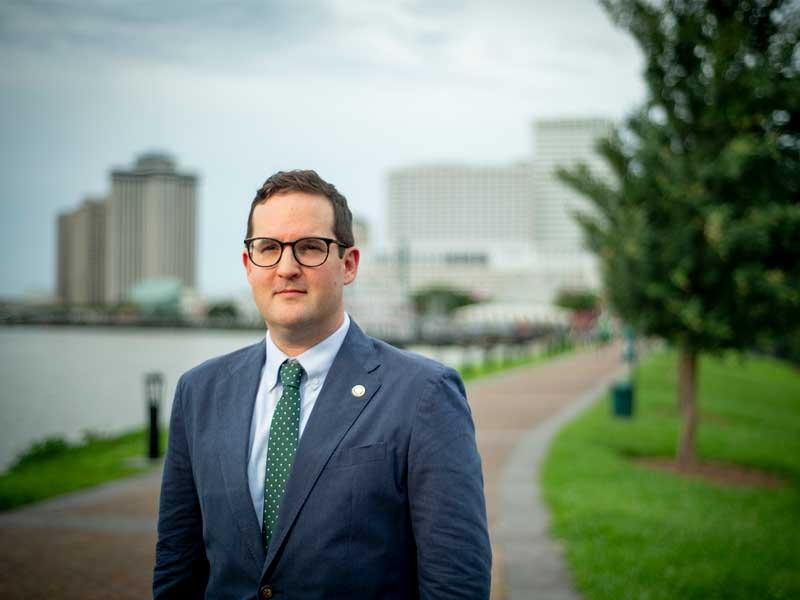Tulane professor calls for federal plan, funding to make infrastructure more climate resilient
The cost of increased climate-caused events, including floods and wildfires, to the nation’s infrastructure will be enormous, Tulane University climate adaptation scholar Jesse M. Keenan told a U.S. Senate Committee on the Budget at a hearing Wednesday morning.
As extreme weather events become more common, there are increasing demands for better design and management of infrastructure systems, Keenan said, noting that the country already has a $2.6 trillion outstanding bill just to maintain its current infrastructure. This figure, he says, is projected to grow by tens of billions of dollars each year due to climate change.
“A failure to recognize and account for these costs will not only undermine the reliability of our infrastructure, it will also undermine our global economic competitiveness,” said Keenan, the Favrot II Associate Professor of Real Estate and Urban Planning at the School of Architecture.
Operations and maintenance costs for infrastructure, expensive even without climate impacts, are perhaps one of the most immediate infrastructure cost today, Keenan testified. These costs are only expected to grow, Keenan said.
The U.S. has limited research on how to anticipate the total costs of climate impacts over the life of various infrastructure systems, and the country is behind in deploying climate-sensitive design and engineering standards, he said.
As the country embarks on a new era of infrastructure investment, Keenan told the committee it should consider: Are we designing to handle future environmental loads and demand? In high-risk zones, where will we invest, and where will we disinvest in infrastructure? Who will pay to build and maintain it? And are we accounting and budgeting for the anticipated increased costs of capital and operational expenses?
“Where there is risk, there is also opportunity to invest in the next generation of infrastructure that is truly at the foundation of our economy,” he said.
Gov. John Bel Edward also addressed the committee, urging passage of a bill that would give Louisiana and other coastal states a greater share of the revenue the federal government gets from oil and gas drilling off their coasts. Edwards said Louisiana would use the revenue to help pay for coastal restoration, flood protection and other infrastructure improvements to mitigate the impact of climate change.
Edwards added that such efforts, including home elevations, relocating residents from areas that repeatedly flood and the strengthening levees have already lessened the impact of increasingly severe storms.

